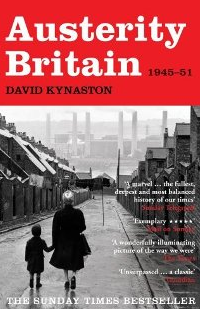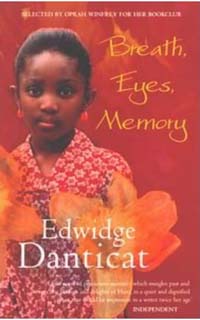 Amongst the usual junk mail this week was a lovely fat package. I am the lucky recipient of a book from DoveGreyReader’s Twelve days of Christmas draw. Thank you Lynne. We’re experiencing our own little piece of Austerity Britain at the moment so a wonderfully fat juicy book is most welcome. I promise we won’t follow the example of some OAPs in Wales who have been rumoured to be burning books to keep warm.
Amongst the usual junk mail this week was a lovely fat package. I am the lucky recipient of a book from DoveGreyReader’s Twelve days of Christmas draw. Thank you Lynne. We’re experiencing our own little piece of Austerity Britain at the moment so a wonderfully fat juicy book is most welcome. I promise we won’t follow the example of some OAPs in Wales who have been rumoured to be burning books to keep warm.
So far I am only far as VE day but that has worn me out:
Queued for a bus but none came – contingents of marchers – officers, men, girls, lads in rough marching order. Walked back to Piccadilly but couldn’t negotiate the Circus. Solid mass of people (St John’s Ambulance men and nurses behind Swan and edgar’s). A policeman advised me to work my way along the wall – but I couldn’t get near the wall. Followed a tall American soldier and made my way to Wardour St. but Leicester Sq. was impassable. Dodged thro’ Soho side streets and finally reached Tottenham Court Rd – a 19 bus and home.
I’ve peeked at the pictures of queues and bombites and it suddenly stuck me why my mother would always refere to a piece of waste ground or an empty building plot as a bombsite. In her teens and early twenties any such ground was highly lucky to be in that state because of a bomb.
I just can’t imagine what life must have been like. The closest I can come to anything like that was the 3-day week in the 1970s. Electricity was zoned and certain areas would be cut off for hours at a time. Luckily my grandmother lived in the same town and had a gas fire so we would congregate there and keep warm. We were sent home from school, just after lunch, every Wednesday when the power was turned off. I’m not sure if we planned what happened next but if we did we were definitely genius material. A group of us decided to go to the cinema. However, the cinema was in the same zone as school and so just when the film was at about the 70% mark , the power would go off, patrons would be asked to leave and were given vouchers to see another film some time. The next Wednesday exactlt the same thing would happen and although we hadn’t actually paid to get in this time, we would still be given a voucher for another free entry. The sad part of this escapade is that I can barely remember one of the films. It was “The Seven Deadly Sins” and I think we experienced five of the seven.
In those years we always had a good supply of Price’s candles under the kitchen sink and I know that when we were first married I dutifully stashed some of my own there should I ever have the need to stick a candle to an old saucer with melted wax. Are they still there? Maybe I will investigate when spring comes around.

